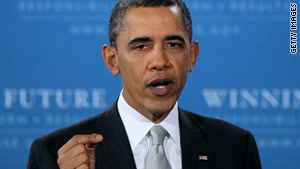As members of Congress fight over what to cut in the current federal budget to avert a government shutdown, lawmakers are about to receive a blockbuster report that could provide a roadmap to potentially hundreds of billions of dollars in waste. The nonpartisan General Accounting Office (GAO) is poised to release a report Tuesday that one senator said "will make us all look like jackasses." "Go study that (report). It will show why we're $14 trillion in debt," said Sen. Tom Coburn, R-Okla. "Anybody that says we don't look like fools up here hasn't read the report."
 |
| provide a roadmap to potentially hundreds of billions of dollars in waste |
The report, a summary of which was obtained by Fox News, was mandated by Congress the last time it raised the debt limit in January 2010. In its analysis of federal agencies, the GAO found 33 areas with "overlap and fragmentation." "Reducing or eliminating duplication, overlap, or fragmentation could potentially save billions of taxpayer dollars annually and help agencies provide more efficient and effective services," the report says. In one example, the report found that if the Defense Department were to make "broader restructuring" of its "military health care system" it "could result in annual savings of up to $460 million."
Even more scathing is the duplication investigators found in the nation's biodefense efforts, with the report essentially saying that the billions of dollars spent annually is the responsibility of no one individual and that there is no plan for post-attack coordination, this on the heels of a 2010 federal commission finding that gave the U.S. a "failing grade" in its prevention measures. "There are now more than two dozen presidentially appointed individuals with some responsibility for biodefense. In addition, numerous federal agencies, encompassing much of the federal government, have some mission responsibilities for supporting biodefense activities. However, there is no individual or entity with responsibility, authority, and accountability for overseeing the entire biodefense enterprise," the report finds.
"There is no national plan to coordinate federal, state, and local efforts following a bioterror attack, and the United States lacks the technical and operational capabilities required for an adequate response," the report goes on. "Neither the Office of Management and Budget nor the federal agencies account for biodefense spending across the entire federal government." As a result, the federal government does not know how much is being spent on this critical national security priority."
The report touches agencies and programs across the federal government, from the Transportation Security Agency to homeless programs and domestic food assistance, and what emerges is a kind of bureaucratic morass where sometimes enough is not even known about federal programs to provide an accurate evaluation. "We don't know what we're doing," Coburn chastised. The Defense Department takes a number of hits in the report. The GAO found many instances of duplication in the sprawling agency. The use of "urgent need" funds have been expanded, GAO found, with "multiple places for a warfighter to submit" such requests. GAO found that the Pentagon has "no tracking mechanism" for these funds, resulting in an estimated $77 billion in overlap since 2005. An analysis of 18 different programs across three federal agencies that deal with domestic food assistance found that though multiple programs can ensure the needy have access to food, "administrative costs increase significantly," with GAO estimating a $62.5 billion expense to the government from overlap and duplication. Better coordination of hazardous material assessments between TSA and the Department of Transportation could save the government more than $1 million.
"Congress is often to blame," the report reads in bold type for emphasis, as the report details $2.9 billion in overlap in 20 homeless programs spread throughout seven different agencies. "Fragmentation and overlap in some of these programs may be due in part to their legislative creation as separate programs under the jurisdiction of several agencies," the report finds.
"Little is known about the effectiveness of most (federal job training and employment) programs," GAO says, resulting in a possible $18 billion in savings. The report says there are 47 programs offered currently, but 44 of those "overlap with at least one other program." Congress asked GAO to look specifically at "federal programs, agencies, offices, and initiatives with duplicative goals and activities, to estimate the cost of such duplication, and to make recommendations to Congress for consolidation and elimination of such duplication." There are many other examples of potential waste found across the yawning federal bureaucracy, with GAO concluding, "Considering the amount of program dollars involved in the issues we have identified, even limited adjustments could result in significant savings." Perhaps members looking to find billions in savings will not have as tough a job finding the money as they thought.






